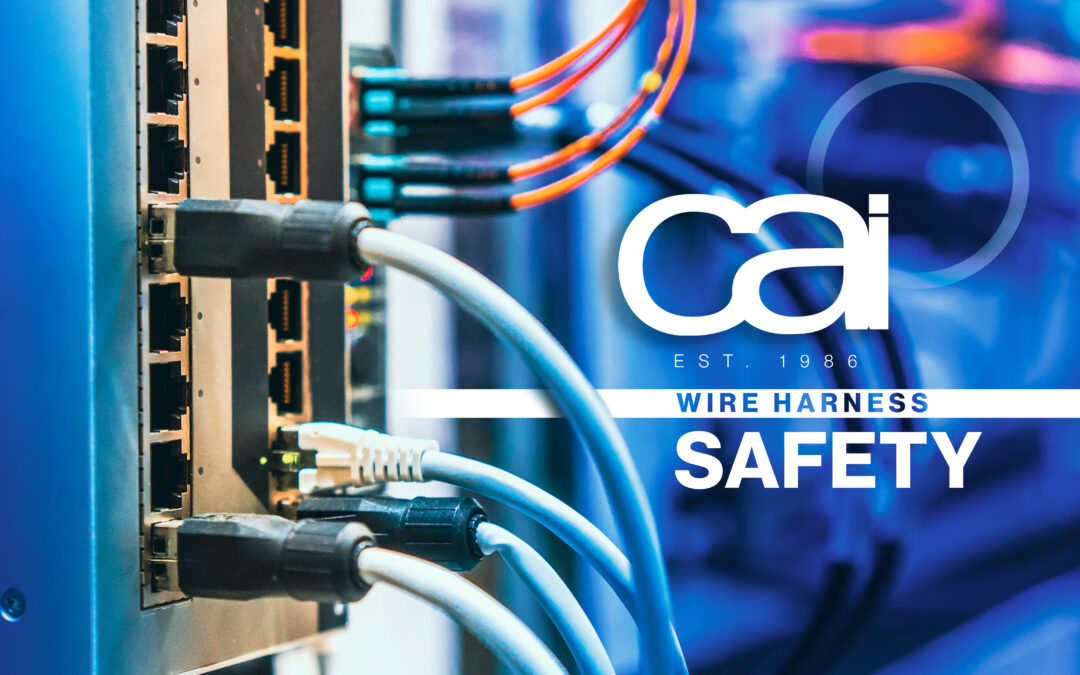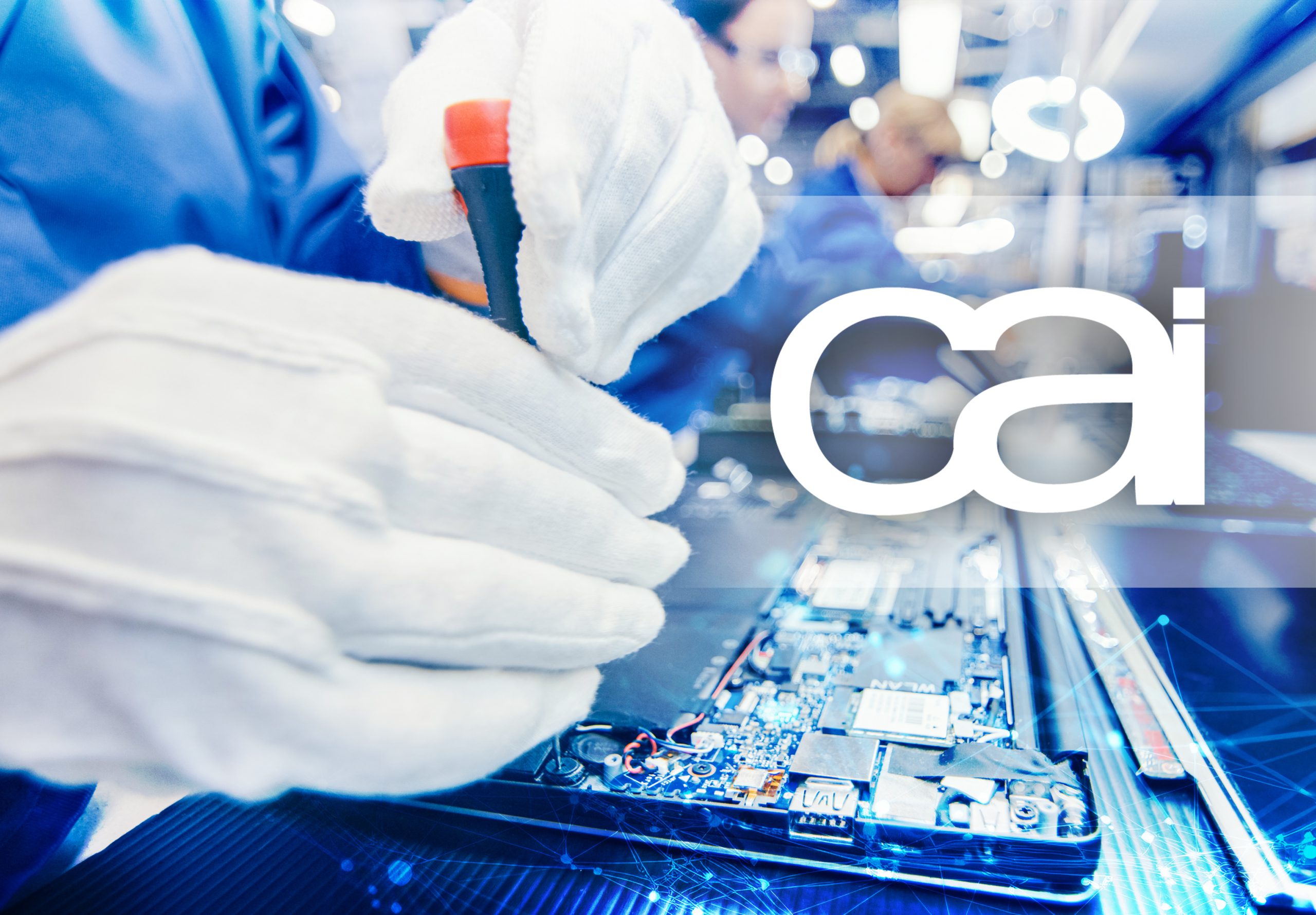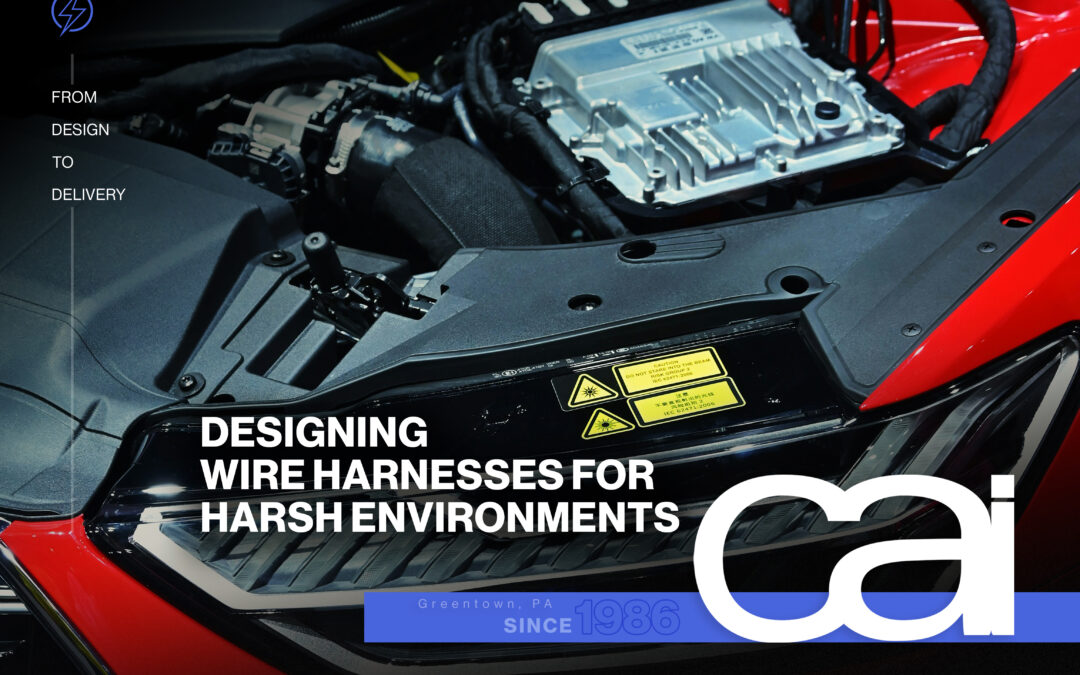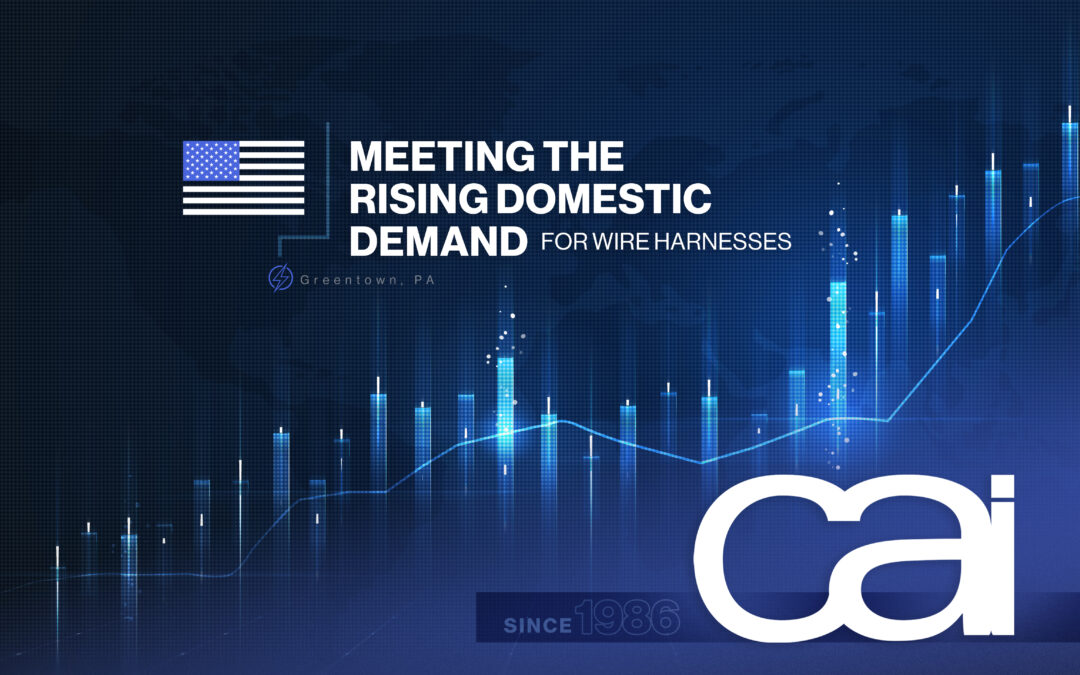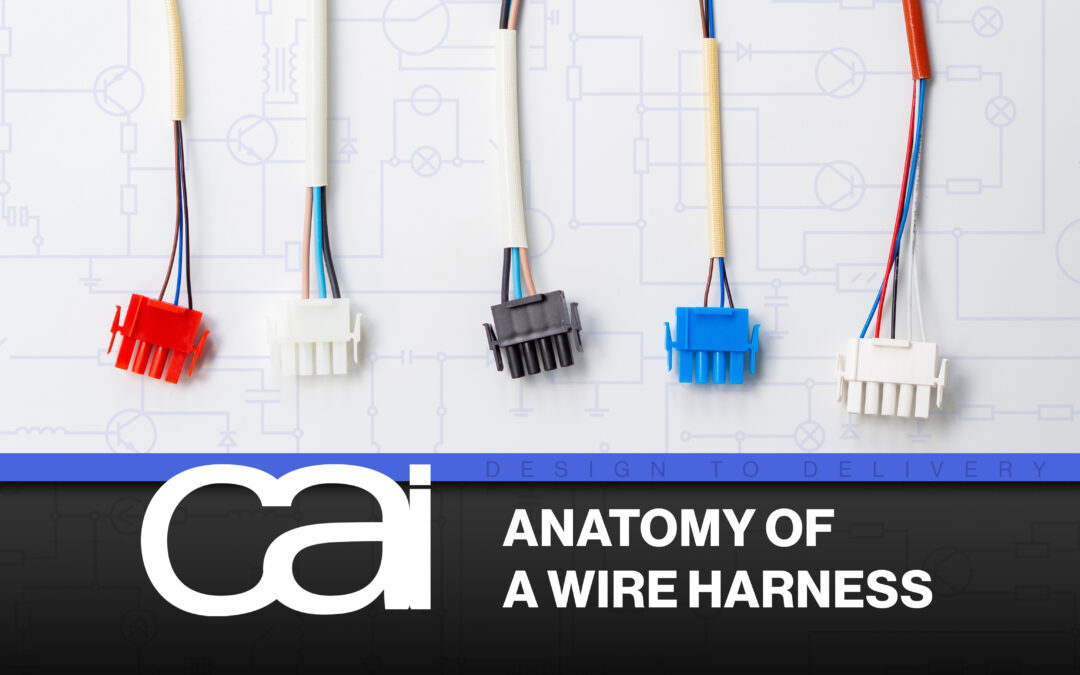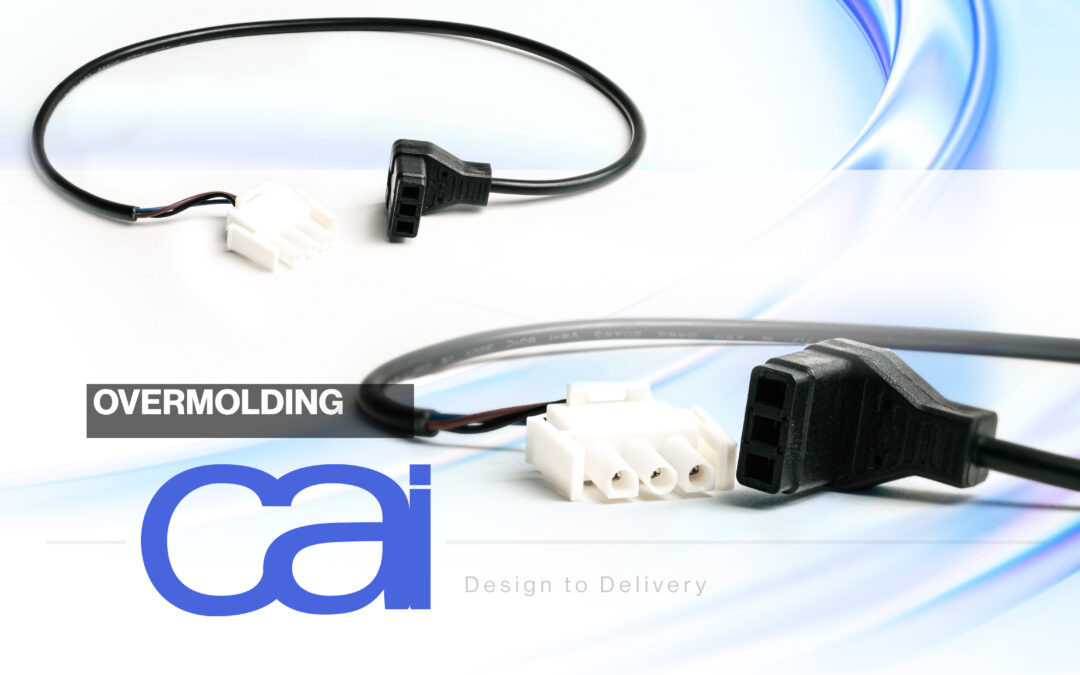Answer These 4 Questions to Decide if Outsourcing is Right for You
If you had the resources, staff, space, skill, time, and money to take care of all your manufacturing needs yourself, you would, ideally. But that’s often neither possible nor practical, especially when it comes to complex projects like building critical electrical systems that demand precision and expert craftsmanship.
From custom wire harnesses and overmolded cable assemblies to mechanical and electro-mechanical assemblies, there are a variety of essential parts needed to power and transfer data to the machines and devices used in just about every industry. When your project calls for these types of electronic products, it’s tempting to want to have total control and take care of design and production in-house.
After all, it’s not easy to trust outside manufacturing assistance, and you may think that outsourcing will cost more money than you want to spend. While these concerns are valid, this isn’t always the reality, especially when dealing with a trusted integrated process-controlled manufacturer like CAI who’s been in the game for over three decades providing high-quality outsourcing services and stocking programs to many diverse industries.
That’s not to say that taking care of these manufacturing needs yourself isn’t feasible; it very well may be a good choice. But before you take that leap, answer these questions first to decide if outsourcing may be the better one:
1. Does Your Team Have the Skills to Do It All Themselves?
First things first: your product is too important to leave to chance or unskilled hands and changing personnel. Even with a decent understanding and experience in the field, if you don’t truly know or optimize your stuff, you risk a poor product, poor use of time and resources, even safety issues. A quality specialist offers the know-how, honed skills, and familiarity with the latest practices to help you produce the best finished product possible.
With years of experience in producing a wide array of product solutions for a breadth of market applications, a seasoned team is able to provide the value of design and development assistance while at the same time considering overall manufacturability, material, labor cost optimization, and quality assurance. They can also provide more creative solutions for achieving your vision.
2. Is In-House Best for Maximum Productivity?
Achieving maximum productivity is a top priority for any successful business, and the key to productivity is a seamless experience that optimizes time, resources, and money. Manufacturing electrical components is often a complex and overhead-impacting operation that involves different processes that must be done with precision to ensure the best product. Any hiccups can cause a domino effect that adversely affects productivity.
Trying to accomplish this in-house when it’s not your specialty can be a huge undertaking which you may not realize until you’re in the thick of things. Conversely, a manufacturing specialist should have the process integration capabilities to do everything your project entails more efficiently and inexpensively than you could in-house. This means quicker turnaround times, greater quality control, lower overhead, and an all-around better product.
Offering extensive integration capabilities and experience, certified manufacturing experts utilize specialized tools, capabilities, and materials for your custom job. They make sure your project goes from one process to the next as smoothly as possible for maximum productivity. Plus, they’re typically structured to produce at scale, so you’re not limited in the scope and volume of your project.
From prototype to production, CAI delivers professional, high-quality results to clients time after time. Start a conversation with us today about your unique outsourcing needs.
3. When Adding Up the True Costs, Does In-House Really Save You Money?
Say you do have a team with the skills to bring things in-house and do it productively. You’ll still need all the equipment, tools, and material to do the job right as well as a place to put it all and perform the task efficiently. In-house manufacturing requires additional space and administrative costs, bulky equipment, component level WIP tracking, and finished inventory of materials and tools.
Then there’s the time, money, and hassle of maintaining a properly trained staff, keeping up with the cost and regulatory increases in your industry’s wages and benefits, and onboarding new employees. Processes like wire harness assembly and PCBA manufacturing require specially trained hands and often certifications if you’re going to do it properly.
Furthermore, outsourcing allows you to take some of the load off your shoulders and devote more space, time, and resources to perform your business’s core functions and do what your company does best. The reduced operating and overhead costs will let you put that money toward other business needs.
4. Can You Handle Repairs & Maintenance of In-House Equipment?
The equipment and tools involved in electrical or mechanical projects can be expensive to acquire as well as costly to maintain and fix. High-tech equipment requires routine expert calibration and maintenance and can be prone to failure when overly or improperly used. Any unplanned stop in production, downtime, will most certainly lead to lost revenue.
Furthermore, as technology rapidly advances, some equipment becomes obsolete. If you want to keep up with the most recent processes, you may have to replace your equipment more frequently than you’d like. Dealing with replacements and upgrades can be a big hassle and also come with a big price tag. Outsourcing lets you concentrate on more important things while the manufacturer handles the maintenance and repairs of their equipment.
If you can answer each of these questions with an unequivocal yes, then taking care of your electrical needs in-house sounds like a safe bet. However, if you’ve answered no to any of them, then it’s probably best to trust your custom manufacturing needs to outside experts who can save you time, money, and hassle compared to doing it yourself. Partnering with an experienced integrated specialist could very well improve your product as well as your bottom line.
At CAI, we provide expert craftsmanship, maximum productivity, the best tools for your job, and integrated capabilities for all volumes. Let us know what you need and we’ll work with you to help you bring your vision to life.
